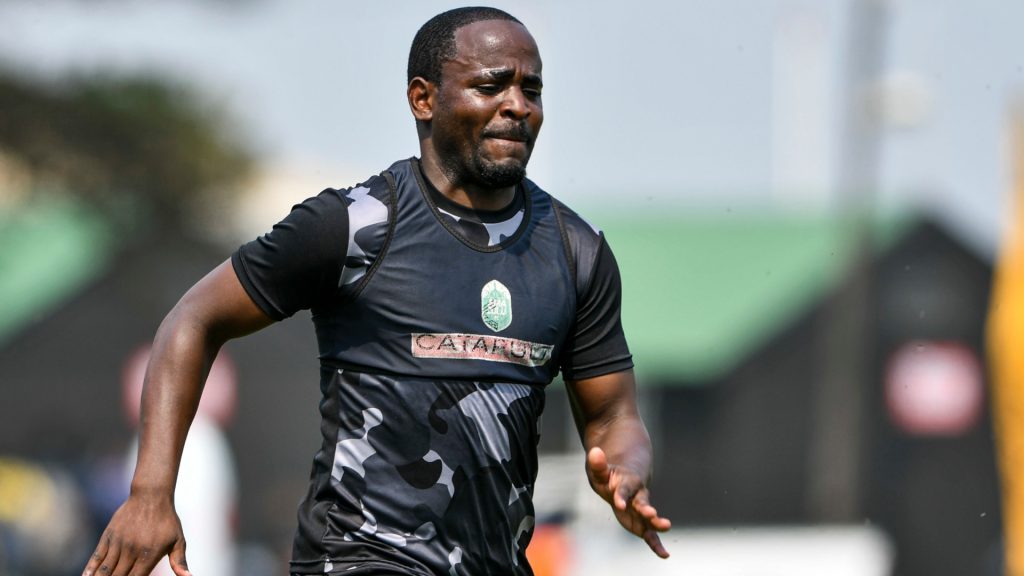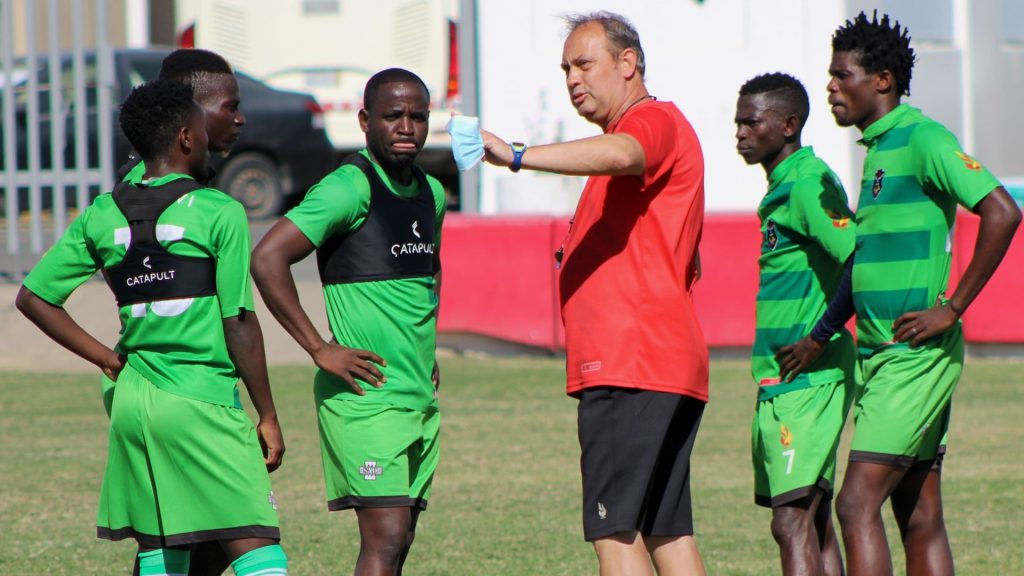AmaZulu striker Gabadinho Mhango is currently the lone Malawi’s Flames star keeping the fire burning in the DStv Premiership.
This represents a sharp decline from last campaign when there were four, including Richard Mbulu, Gerald Phiri Junior then at Baroka FC and Limbikani Mzava (before he left AmaZulu).
The number of Malawians in the DStv Premiership was even higher a decade ago.
The list included the likes of Robert Ng’ambi, Robin Ngalande, Joseph Kamwendo, Peter Mponda, Grant Lungu, Atusaye Nyondo, Moses Chavula, Allan Kamanga and Fischer Kondowe.
The less we say about the glory yesteryears when Jack Chamangwana, then later on Patrick Mabedi captained Kaizer Chiefs to glory, the better.
Gangling forwards Esau Kanyenda and Russel Mwafulirwa’s goals powered Jomo Cosmos to success.
Ernest Mtawali, Kennedy Malunga and Chancy Gondwe kept the heart of Mamelodi Sundowns midfield ticking.
Cedric Nankhumwa and Lovemore Chafunya delivered from the front for the then Screamer Shabalala-coached Sundowns.
John Maduka epitomized hard-work and loyalty to Umtata Bucks Bucks, Royal Zulu and Bloemfontein Celtic, following compatriot Stock Dandize’s footsteps.
The list is endless.

WHAT GABADINHO MHANGO MEANS TO MALAWI
However, as you read this, the entire Malawian nation bites its fingernails praying for the success of its lone representative in the DStv Premiership—Gabadinho Mhango.
You should have been in Malawi when Gabadinho Mhango powered the Flames to the round-of-16 of the 2021 AFCON in Cameroon. Gabadinho Mhango was the national anthem.
Fans could not help but wonder how Pirates dared even chain to the substitutes’ bench and even the terraces such a treasure.
Then Buccaneers’ co-coach Mandla Ncikazi even committed an unforgivable sin to most Malawians by insinuating that Gabadinho’s form was no passport to regular club football because the DStv Premiership is tougher than AFCON. Whatever that meant.
Relief was, therefore, a prevalent emotion in Malawi when Gabadinho deserted the bright lights of Johannesburg for idyllic KwaZulu-Natal to focus on football alone.
But why is this the case that an entire nation spoilt with talent in the streets of Lilongwe and Blantyre cannot export more talent to South Africa and even Europe?
There are even fewer Malawians in the second-tier Motsepe Foundation Championship—Rafiq Namwera and Chembezi Denis at Black Leopards, Khuda Muyaba and Mike Mkwate at Polokwane City.
That’s about it. The flame of Malawi is dying in Mzansi.
WHAT FLAMES COACH MARIO MARINICA SAYS ABOUT FEW MALAWIANS IN MZANSI
Malawi’s Flames coach Mario Marinica said the issue of the current generation of Malawian players making little impact in South Africa should be looked at holistically.
“From case-to-case, it could be mental (example adapting to new demands, self-sufficiency), social integration, lack of coaching background in order to cope at the highest level, physical attributes etc,” he told FARPost.

Part of the reasons could be that some Mzansi clubs are too impatient.
The teams want to sign finished articles to deliver instant results, Marinica observed.
“Additionally, clubs are not always patient with their investment and expect instant and consistent results without making an effort to help players through their bad patches.
“Sometimes forgetting that a good player doesn’t become an awful player overnight for no reason,” he told FARPost
Marinica coached in South Africa years ago at Black Leopards. He is, therefore, well-versed to connect the dots of why there are now fewer Malawians in South African football.
The Romania-born English coach calls for a deeper analysis of the why.
Nonetheless, Marinica said there was no reason to lose hope at the prospect of having more Malawian footballers back in South Africa.
“The good thing is that Malawian players are deemed to have the required qualities to be drafted in PSL and other good SA clubs,” he said.
“The reason for them not always making an impact may be [require] a much deeper than meets the eye.”
Longtime Cosmos scout in Malawi, Ben Chiwaya, told The Daily Times there was a need to revamp Malawi talent development factory.
“If we can improve our development structures in both clubs and national teams, we will be able to export more players,” Chiwaya was quoted saying.
“There are a lot of things which we look at when scouting and it includes age, behaviour both on and off the pitch.
“The market is so huge and Malawi has a lot of hidden talent. Let us not focus on already products and ignore the youth,” Chiwaya added.
Former Nathi Lions and AmaZulu defender, Moses Chavula, felt Malawi was paying the price of unconvincing performance on the international stage.
“Malawi players have failed to live up to their expectations when they get deals with PSL teams,” Chavula told the Malawi newspaper.
“In addition, some players fail to impress during the Cosafa Cup.”
Perhaps, there is more than what meets the eye, including lack of vibrant scouting system and absence of top-notch agents in Malawi as is the case with Zambia and Zimbabwe.
Limited participation of Malawian clubs in the CAF Champions League and Confederation Cup also means limited exposure for Malawians players.
The reasons are endless. For now, let Gabadinho keep flying the Flames flag higher in Durban.
RELATED STORY: Pirates’ reject Gabadinho’s brace fires up Malawi Flames

